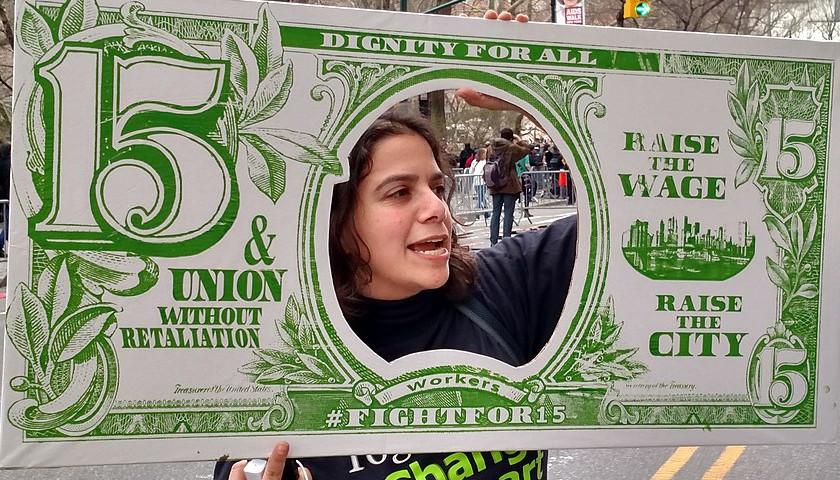by Bethany Blankley
President Joe Biden supports incrementally raising the federal minimum wage to $15 an hour, more than double the current rate of $7.25 an hour.
Late last week, he signed an executive order requiring federal contractors to pay at least $15 per hour wages and provide emergency paid leave to employees.
The order instructs the Office of Personnel Management to develop recommendations for agencies to ensure that employees receive a $15 per hour minimum wage.
Increasing the minimum wage to $15 is expected to cost roughly 1.3 million jobs, according to a 2019 analysis published by the nonpartisan Congressional Budget Office.
The federal minimum wage has not been increased since 2009.
Increasing the minimum wage to $15 an hour by 2025, as Democratic lawmakers want, would increase the income of 17 million people but it would come at a cost, CBO notes, disproportionately impacting part-time workers and adults without a high school diploma.
Currently, 29 states and the District of Columbia have in place minimum wages above the federal rate of $7.25, according to the National Conference of State Legislatures. Many of these states have higher costs of living than the states with lower minimum wage rates.
“There’s such a geographic discrepancy of wages that I think a one-size-fits-all federal minimum wage of $15 per hour may pose bigger problems for certain geographic areas or certain states more than others,” Kevin Kuhlman at the National Federation of Independent Business, said in response to the proposal. The federation is the largest U.S. small business lobby, which opposes the increase.
A $15 per hour wage for a standard 40-hour work week at 52 weeks per year translates to $31,200 in yearly wages before taxes.
Many see last week’s order as the first step toward changing the minimum wage nationally.
In 2019, the U.S. House of Representatives passed the Raise the Minimum Wage Act, which would incrementally increase the hourly wage each year, reaching $15 in 2025. The bill was blocked by former Senate Majority Leader Mitch McConnell, R-Ky.
Now with Democrats controlling the White House and both chambers of Congress, a national bill increasing the minimum wage is more likely to pass.
U.S. Sen. Pat Toomey, R-Pa., warned that, “If the federal government mandates a universal $15 minimum wage, many low-income Americans will lose their current jobs and find fewer job opportunities in the future.”
But Sen. Elizabeth Warren, D-Mass., replied, “If the Republicans want to drag their feet while working families struggle, the Democratic majority should use every legislative tool available to pass it,” appearing to refer to budget reconciliation.
The budget reconciliation process enables the Senate to pass a bill with a simple majority vote and bypass a Republican filibuster.
– – –
Bethany Blankley is a contributor to The Center Square.
Photo “15 Dollar Minimum Wage Supporter” by The All-Nite Images. CC BY-SA 2.0




